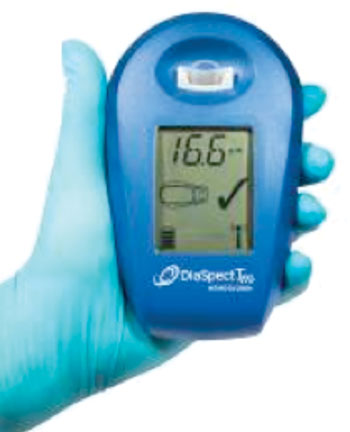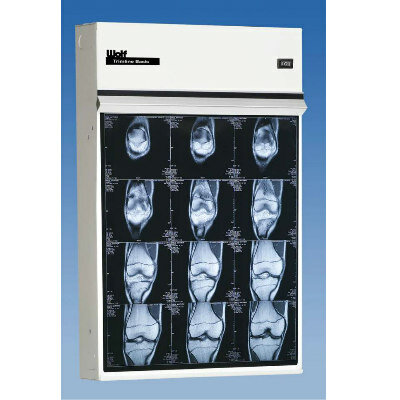New Tools for Monitoring Blood Status and Infection
By HospiMedica International staff writers
Posted on 04 Nov 2014
Two new diagnostic tools relating to blood status and infection will be introduced at Medica, the annual showcase for biomedical products.Posted on 04 Nov 2014
EKF Diagnostics (Cardiff, United Kingdom) announced that it will be highlighting its DiaSpect hemoglobin analyzer and Liquicolor Procalcitonin immunoturbidimetric assay for sepsis at this year's Medica (Düsseldorf, Germany, November 12–15, 2014).

Image: The DiaSpect hemoglobin analyzer (Photo courtesy of EKF Diagnostics).
DiaSpect is a palm-sized point of care analyzer that is fast, easy to use, and reliable in all climate conditions. The instrument utilizes reagent-free microcuvettes, which are unaffected by humidity, unlike reagent-based systems. These plexiglass microcuvettes also have a long shelf-life of 2.5 years with no need for refrigeration, as they can be stored from zero to 50 degrees Celsius. DiaSpect weighs only 185 grams and has an extremely long battery life of 40 days of continuous use, or 10,000 tests, due to its integrated rechargeable lithium-ion battery. DiaSpect is factory calibrated and requires no recalibration or maintenance, as it performs an automatic self-check between every measurement. Hemoglobin results, which are delivered in just one second, can be downloaded to a PC via USB or Bluetooth.
EKF’s novel test for early sepsis detection, the Liquicolor Procalcitonin immunoturbidimetric assay, is precise, convenient, and cost effective, as it is in a liquid-stable format that can remain stable on-board a clinical chemistry analyzer for up to four weeks and requires a minimal sample of just 20 microliters. Procalcitonin levels become elevated during systemic bacterial infection and sepsis and are an early and specific indicator of sepsis. The CE-marked Liquid Procalcitonin assay can be used on most automatic chemistry analyzers to quickly assess initial severity of sepsis.
Related Links:
EKF Diagnostics














